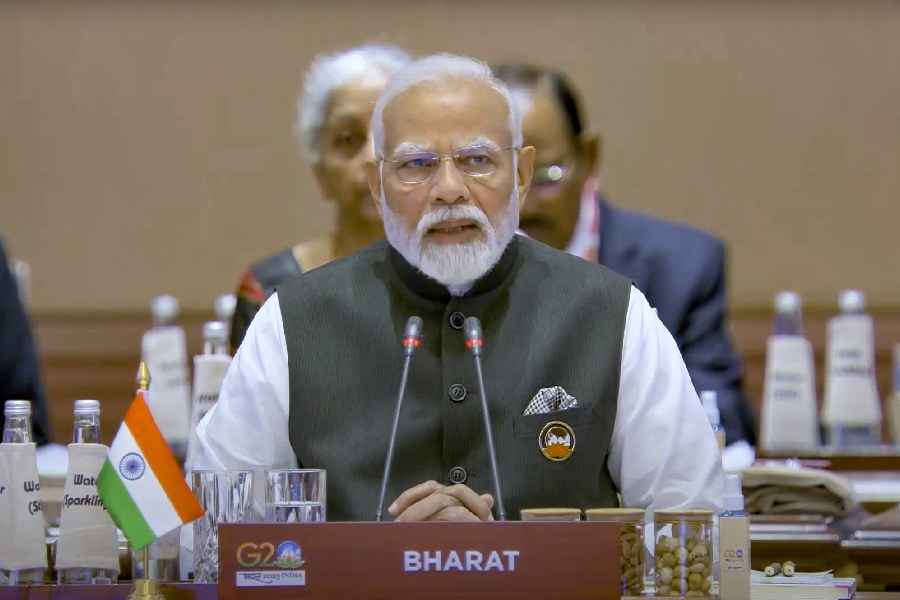
Prime Minister Narendra Modi has claimed credit on the eve of G20 summit for converting a heads of government meeting into “a people’s festival”. The government did well to popularize the Indian G20 agenda among people across the country and the world, even if this was something done a la Bollywood style. It is, therefore, striking that in the run—up to summit there has been considerable criticism of the Prime Minister’s leadership style in international media.
The world is taking an increasingly critical view of India. The Pew Research institute recently reported that while 68 per cent of Indians polled felt that India is “getting stronger”, in most other G20 countries, including the United States, no more than a third felt this way and close to half in fact felt nothing much had changed as far as India’s “influence in the world” is concerned.
Part of the reason for this global “influence”, is not shaped by governments alone but by people and civil society institutions and the interaction between them. Official propaganda only feeds one’s own ego and usually waste of time. Consider the fact that government to government (G20) level, China has become very “unpopular” in the West and yet, even today, China attracts more western tourists and business than India. Public perceptions about nations are as important as G2G relations. In fact, when diplomatic relations worsen, people-to-people (P2P) contacts can help maintain a balance in the relationships between nations, especially neighbours.
This, however, has not been the Modi government’s approach to Pakistan and China. A deterioration in diplomatic relations has been accentuated by reduced P2P contact. Apart from an occasional cricket match, which is played as if sportsmen are soldiers, there is actually no social contact between the civil societies of India and Pakistan. It was certainly heartening to see athlete Neeraj Chopra’s mother gently rebuke an Indian journalist for suggesting that her son’s victory was sweeter since a Pakistani had been worsted.
Social contact among people through tourism, culture festivities, academic programmes is generally very low between India and her neighbours but minimal with important ones, China and Pakistan. All three governments are to blame for this situation and so there is no point in indulging in a blame-game. The low civil society traffic between China and India stands in contrast to the continuing P2P contact between China and United States despite worsening G2G relations.
It is in our national interest that even as our government adopts a tough stance on national issues pertaining to our neighbourhood, it ought to encourage greater civil society contact cross borders, especially among and academia. Neighbourhoods must permit each other’s media to be properly stationed and represented. One of the best books in recent times about life in China was written by the Indian journalist, Pallavi Aiyer. But that was over a decade ago.. The absence of such media contact explains how dependent India media has become on Western for views on China.
Indian society and culture retain a certain appeal across much of Asia, including China, even as Indian elite attitudes and prejudices do not. Indian elites are viewed as arrogant, pro-west and lacking in cultural and nationalistic spirit. It is precisely for this reason that in the past many in China had enthusiastically reached out to the activists and intellectuals affiliated with RSS, and preferred dialogues in Hindi and Mandarin to English. But the more recent closing of the Indian minds poses a challenge to a better understanding of important neighbours. (IPA Service)
The post Converting G20 Summit Into A People’s Festival Is Highly Welcome first appeared on Latest India news, analysis and reports on IPA Newspack.


